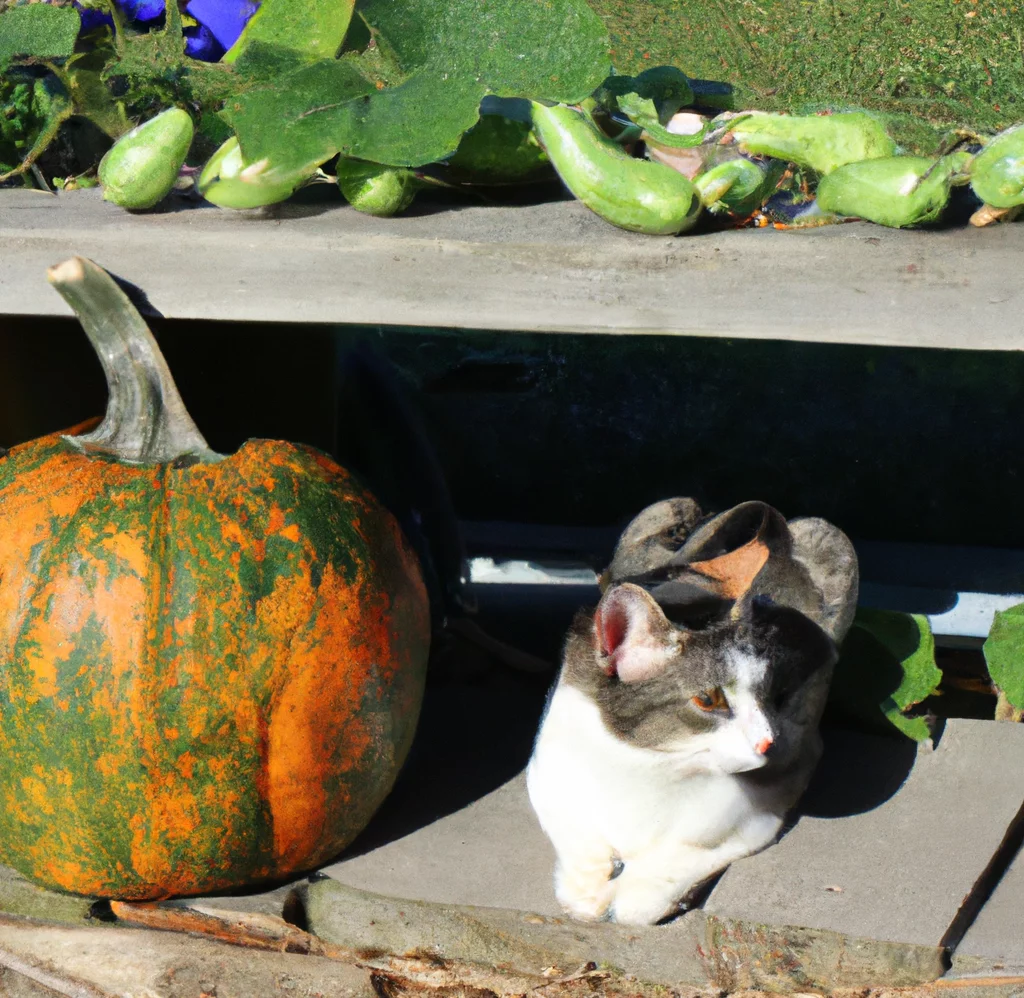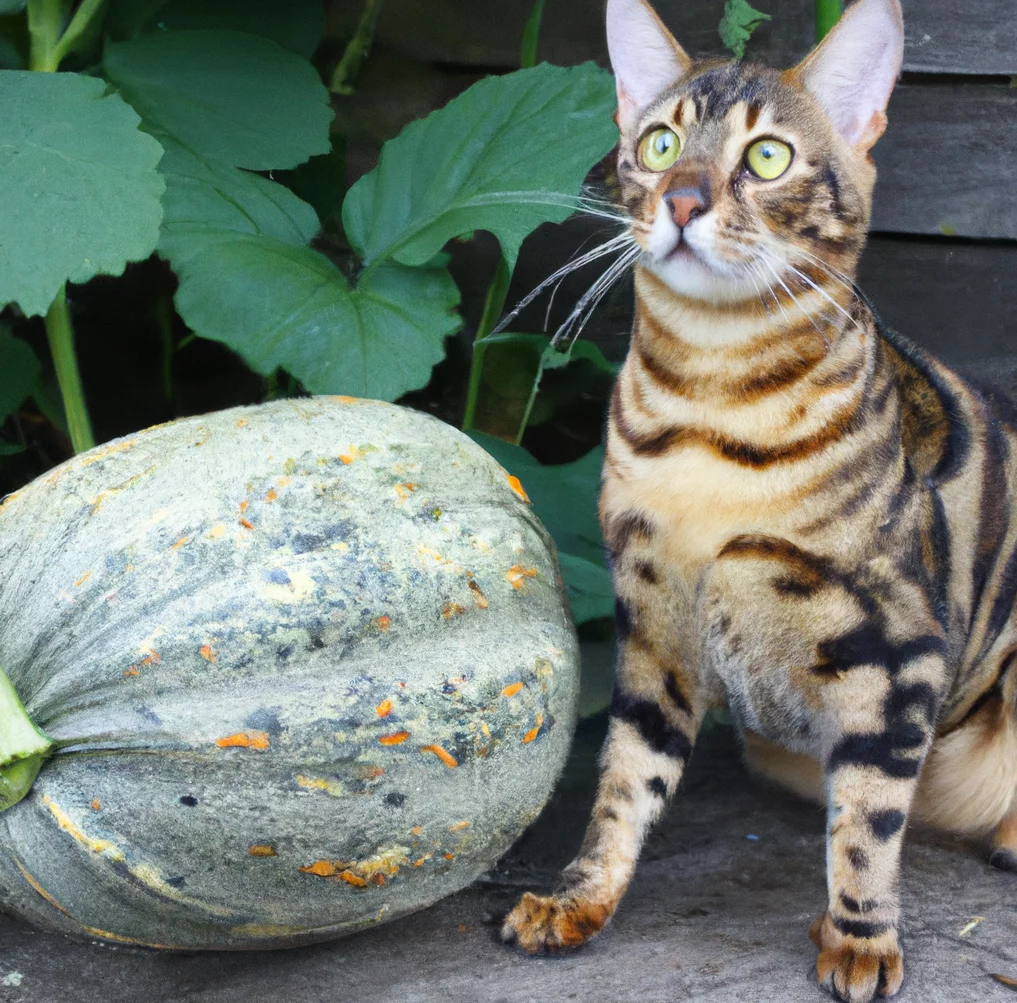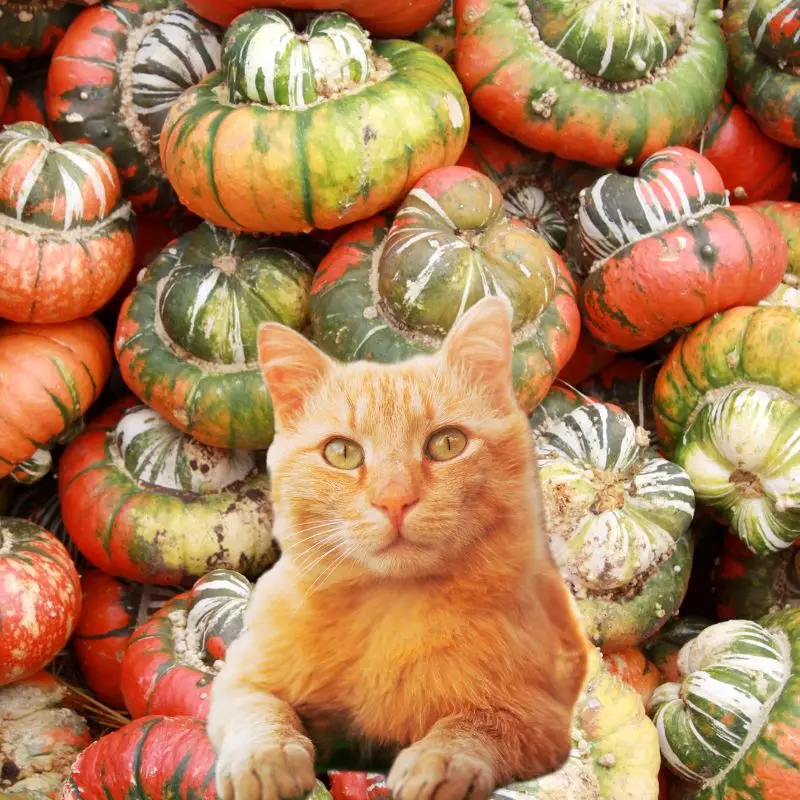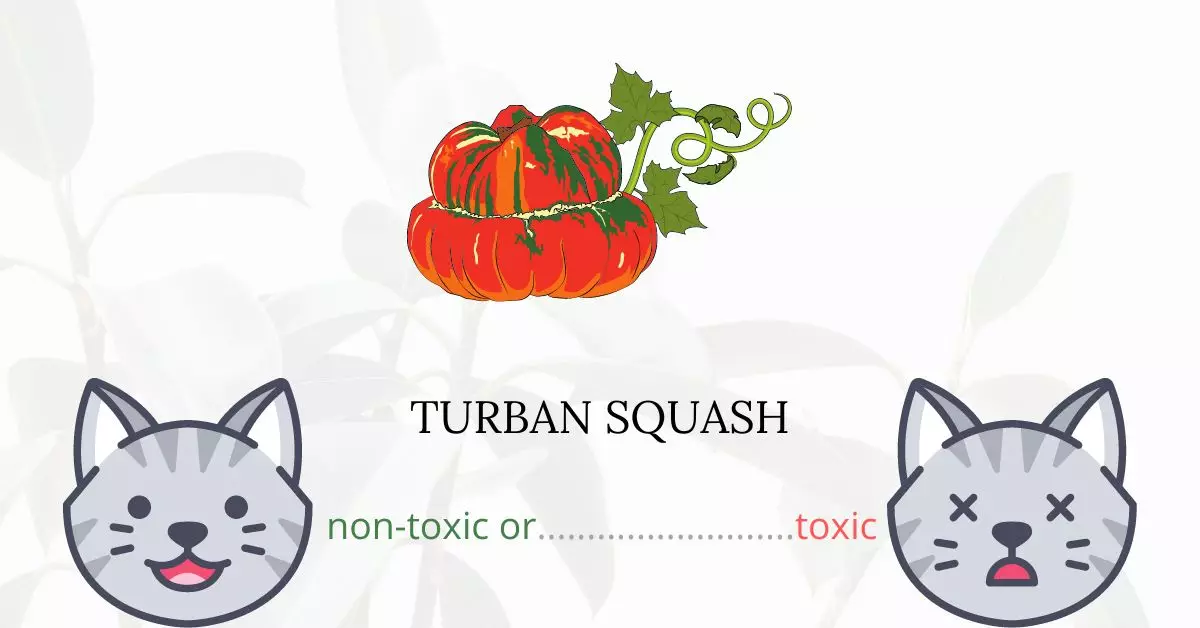No, turban squash is not toxic for cats. In fact, it’s recognized as safe according to the American Society for the Prevention of Cruelty to Animals (ASPCA).
This article has been crafted in close collaboration with a team of experienced DVMs (doctors of veterinary medicine). Leveraging their expertise, along with research from high-authority websites like ASPCA and PetMD, we are committed to providing you with accurate and up-to-date information on the potential risks associated with various plants and their effects on felines.
While turban squash, like its squash relatives, offers some health benefits, it’s essential to be aware of the right way to offer it to your cats.
Can Cats Eat Turban Squash?

According to ASPCA, all types of squash are safe for your cat. Turban squash is an uncommon plant-based food that is surprisingly good for your cat’s health so it is safe for consumption.
Cats, as obligate carnivores, require a lot of meat, animal protein, and animal-derived nutrients to survive and thrive. Turban squash does not belong to this category. It is, however, one of the few plants that can provide your cat with a variety of nutritional and health benefits.
Squash is one of the ingredients in most cat foods that are commercially available. This is due to the abundance of vitamins, minerals, antioxidants, and dietary fiber it offers your cat.
While it is safe to feed any kind of squash to your feline companions, remember that you should only give this moderately. Make sure to peel, wash, and cook it well before feeding it to your cats. Raw squash may cause your cats to have indigestion. Traces of chemical residues may be also present on the leaves and skin of turban squash.
What is a Turban Squash?

Turban squash is a warm-season annual vegetable vine that uses tendrils to clamber up walls or trail along the ground. It is usually 6 pounds when fully grown. Although colors can vary, they are frequently mottled in orange, green, and white tones.
Turban squash is used as a vegetable and as a decorative gourd. Its taste is similar to other squash varieties despite being “not as vibrant,” “reminiscent of hazelnut,” and “coarse, watery, and insipid,” as other maxima cultivars.
Although it thrives in vegetable gardens, on trellises, and as a cover for exposed soil, squash is best suited for expansive landscapes. It is simple to plant from seed, especially in warm soils. After the last frost or late spring, early summer, or both, turban squash should be transplanted.
Keeping Cats Away From Turban Squash

Cats also dislike the scent of some aromatic herbs, such as rosemary, basil, and mint. To keep your cat away, grow these herbs close to your plants. Alternatively, you can place a vase with a few sprigs of the herb nearby. You could also spray the plants with a mixture made of some of these herbs.
To protect your plants from your cats’ paws, consider installing floating shelves or hanging the plants from the ceiling. Often, covering the ground with stones will be sufficient to prevent cats from digging. Cats that scratch and chew might require a little more discouraging behavior training.
Plants to Avoid For Your Cats
If you are a cat owner and unsure if the plants growing in your yard are harmful to your cats, check out this list of toxic plants for cats. You can also check our list of non-toxic plants for cats.





